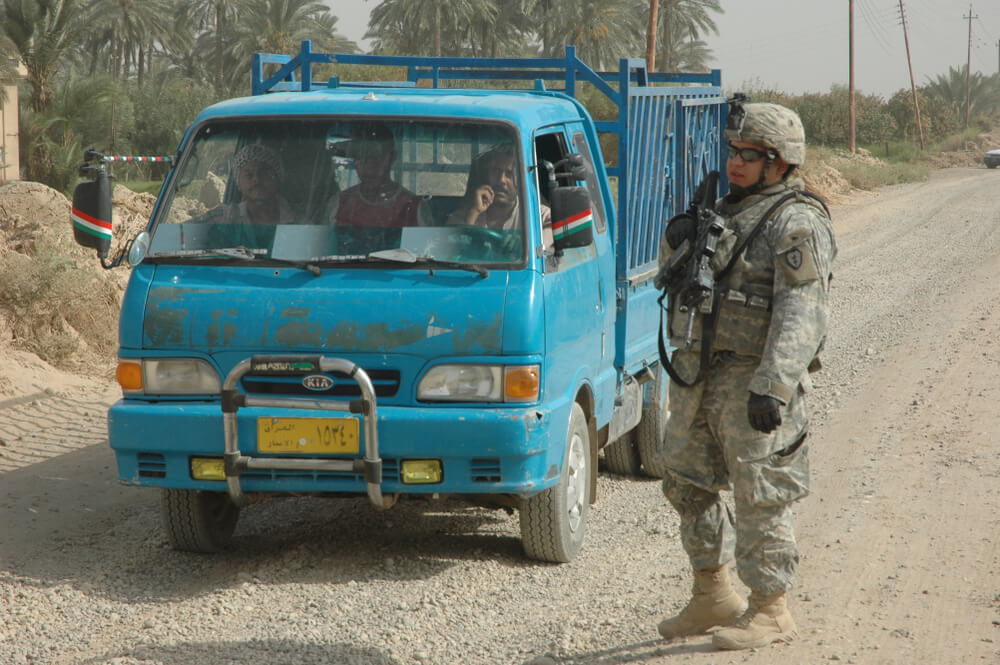The US-led coalition may have defeated ISIS on the battlefield but it is allowing an “incubator of terrorism” to fester in the Al Hol detainee camp in north-eastern Syria, where about 43,000 people languish in limbo with more than half of them children.
Five years after the defeat of ISIS, neither hard-headed analysis of how the camp’s kindling of ISIS ideology and potential for terrorism nor humanitarian appeals over the camp’s appalling conditions have led to action.
About 6,000 of the camp’s inhabitants from 44 countries are held in its most heavily-guarded area known as the Annex and they are considered the most forceful supporters of ISIS. But the group’s reach extends to imposing harsh security within the whole of the camp while the Syrian Kurdish forces of the the autonomous region of northeastern Syria ensure no one leaves.
Brigades of ISIS women enforce the full covering of women while ISIS men can impose measures including execution of those they deem collaborators for passing on information about their members. Many children are born from rape and the forced marriage of young girls. Access to healthcare and education is limited and water tanks are riddled with worms.
Few journalists report from the camp and conditions have deteriorated since the World Health Organisation had to suspend hospital referrals in May due to a massive shortage of humanitarian funding for Syria. Insecurity within the camp has also risen, with 136 murders committed last year, according to the Asharq Al-Awsat newspaper.
“Although the Syrian conflict has abated, there is a perpetual sense of the potential for escalation,” Vickie Hawkins, general director of Médecins Sans Frontières, wrote after a recent visit. “For more than five years, we have documented the unsafe conditions in Al-Hol yet things remain eerily the same.”
Blight on the conscience of humanity
After the defeat of ISIS, its known members as well as ordinary Syrians and Iraqis were swept up and imprisoned in Al Hol, in another camp called Al Roj that now has about 2,600 people, and in more than 20 makeshift prisons holding about 9,000 mostly boys alongside adult men.
Since the UN said the “existence of the camps is a blight on the conscience of humanity” in 2021, little has been done. Outcry over the atrocities committed by ISIS during its rule meant there was widespread support in western countries to strip the passports of former ISIS members.
European countries have been particularly reluctant to take back boys and men
Shamina Begum, who became a household name in Britain when she travelled to Syria as a schoolgirl to join ISIS, lost her latest appeal to regain UK citizenship on “national security” grounds earlier this year. She could have applied for Bangladeshi citizenship before the age of 21 but Bangladesh says there is “no question” of her obtaining citizenship now.
In 14 EU states, citizenship can be removed for treason, disloyalty and other national security reasons. European countries have been particularly reluctant to take back boys and men so women and girls make up most of the repatriations of third-country nationals (TCN), with only the US, Iraq and some Balkan and Central Asian countries regularly repatriating their citizens.
“Would you like some nice ISIS fighters?" then president Donald Trump asked French President Emmanuel Macron in 2019. “We're holding thousands of ISIS fighters right now and Europe has to take them.”
IS affiliates could become radicalised
Since 2019, an estimated 9,300 Iraqis have been repatriated from Syrian camps and prisons, and an estimated 3,450 TCNs have been returned or repatriated from Syria and Iraq, said a recent analysis by the Washington Institute for Near East Policy. In Al Hol, Syrian detainees have dropped from approximately 31,000 in 2019 to 16,500 at the end of 2023.
Unless the international community addresses the issue of detainees, the US and its partners “will be hard-pressed to meet their stated goal of defeating IS kinetically and ideologically,” the institute said.
 Should US forces leave Iraq, and by extension Syria, at Baghdad’s request, IS affiliates could become radicalised in Al Hol and launch more prison breaks - The Washington Institute for Near East Policy
Should US forces leave Iraq, and by extension Syria, at Baghdad’s request, IS affiliates could become radicalised in Al Hol and launch more prison breaks - The Washington Institute for Near East Policy
It is particularly concerned that should US forces leave Iraq, and by extension Syria, at Baghdad’s request, “IS affiliates could become radicalised in Al Hol and launch more prison breaks, potentially resulting in the group’s full resurgence in just one to two years.”
Such a result is made more likely by Syria’s fragmentation and fragility. The country’s three zones are controlled by competing powers —one by Russia and Iran, another by Turkey, and the third by the Syrian Kurds backed by the US.
There are regular attacks against the Syrian Kurds by Turkey and Iranian-backed militia that support Syrian President Bashar Al Assad. In addition, some Arab tribes that allied with the Syrian Kurds to fight ISIS are rebelling and demanding more oil revenues.
The precarious position of the Syrian Kurds has contributed to insecurity in Al Hol, where NGO-provided services are running out. “We have noted an increase in radicalisation for several months” resulting in “more fires and assassinations,” Cîhan Henan, co-manager of the camp, told the French newspaper La Croix last month.
If countries fail to resolve the situation, ISIS attacks on the West may become more likely.